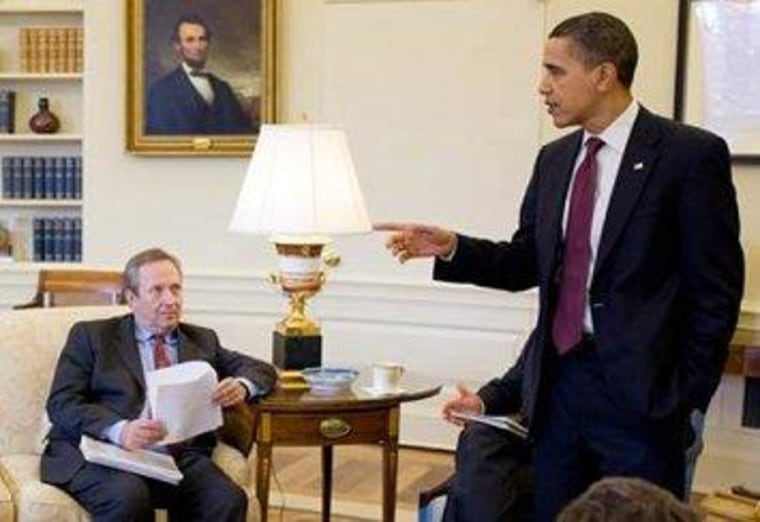Lawrence Summers' path to become the next chairman of the Federal Reserve Board has never been especially clear. Two months ago, when it appeared likely that he was President Obama's frontrunner for the job, a variety of Senate Democrats sent word to the White House: he's the wrong choice.
Though there were some indications that the president might nominate his former economic adviser anyway, Summers yesterday made a wise decision -- and saved the political world quite a bit of trouble in the process.
Former U.S. Treasury Secretary Larry Summers has withdrawn his bid for consideration to succeed Ben Bernanke as Federal Reserve chairman -- a move that allows the administration to sidestep a potentially contentious confirmation process."I have reluctantly concluded that any possible confirmation process for me would be acrimonious and would not serve the interest of the Federal Reserve, the Administration or, ultimately, the interests of the nation's ongoing economic recovery," Summers said in a letter to President Obama.
The New York Times report described the decision as "reluctantly made and reluctantly accepted," though it nevertheless clears the way for a less contentious nominee. Janet Yellen, the current Fed vice chair, is widely considered the new frontrunner.
The tipping point for Summers' possible nomination appeared to come late Friday, when Sen. Jon Tester (D-Mont.), a member of the Senate Banking Committee that will scrutinize the choice to replace Ben Bernanke at the Fed, announced that he, too, would oppose Summers. He joined Democratic senators Sherrod Brown (Ohio) and Jeff Merkley (Ore.) as Summers critics on the committee, and Massachusetts' Elizabeth Warren was likely to be the fourth.
The writing was on the wall: Summers faced a bruising battle and bipartisan opposition. The confirmation votes probably weren't there, especially if Republicans filibustered, and markets wouldn't respond well to the tumultuous process.
The White House may well have plowed ahead, but timing would have been horrendous.
Indeed, consider the larger landscape: Obama will need unified allies in upcoming fights over the budget, the debt limit, foreign policy, immigration, the farm bill, and judicial nominees, and a Democratic caucus fractured over a possible Fed chair wouldn't have done the West Wing any favors.
Stepping back further, it's also worth noting that when it comes to nomination fights -- or in this case, prospective nomination fights -- the left's track record doesn't include many wins over the White House. In general, it's probably fair to say the majority of Obama's nominees have enjoyed relatively strong support from the progressive base, but in instances in which liberals have urged the president to shy away from one official or another, the White House has generally not been swayed.
Perhaps the most notable example to the contrary came in late 2008, before Obama was even inaugurated, when the left rallied against John Brennan, who was rumored to be in contention to serve as director of the CIA or the Director of National Intelligence, but who withdrew from consideration in the wake of progressive pushback. It was important, but the liberal win didn't last -- Brennan became CIA director earlier this year.
It appears the demise of Summers' bid for the Fed is a clearer, more surprising win for the left. We've seen conservatives go berserk in response to possible Obama nominees, and even derail an official or two, but this is arguably the biggest liberal success story on this front.
